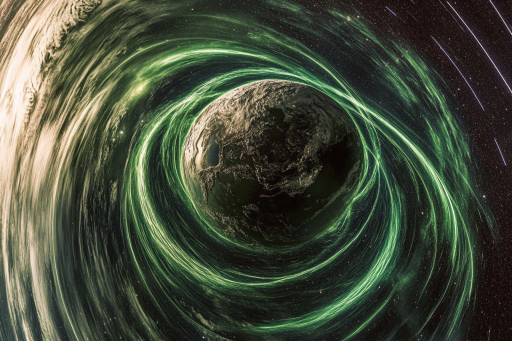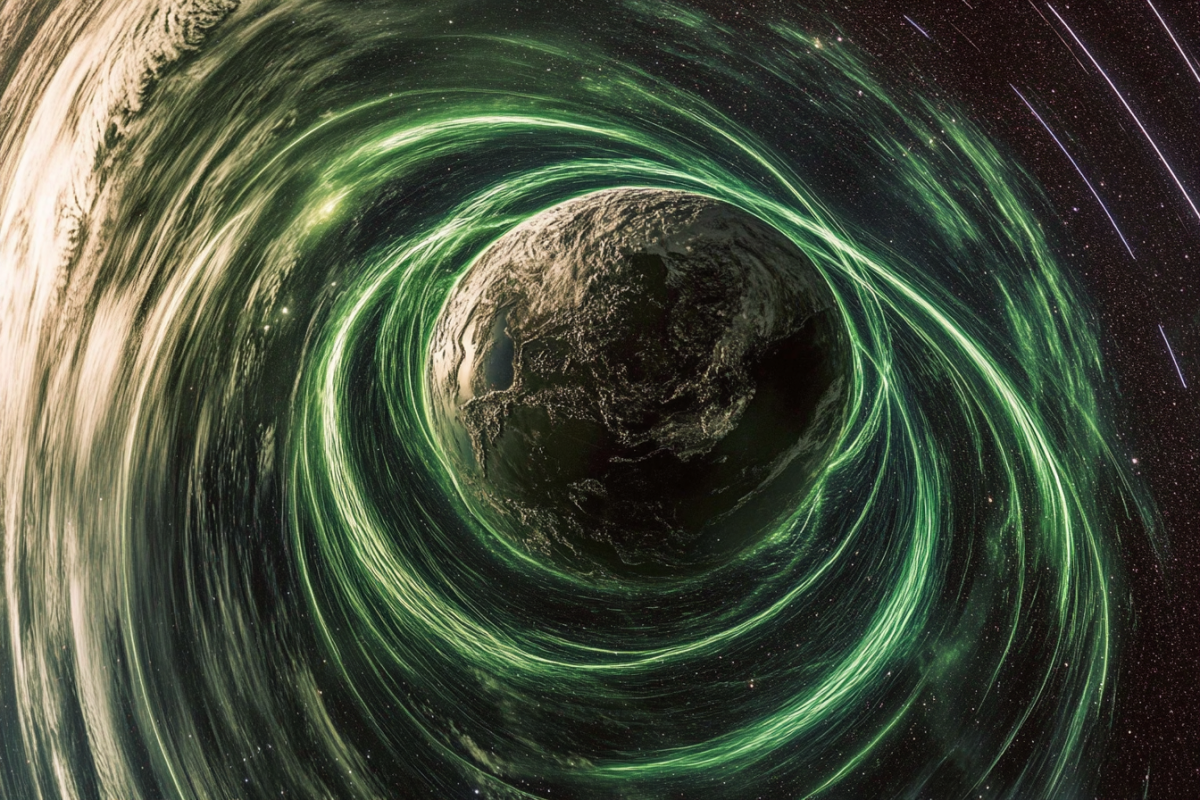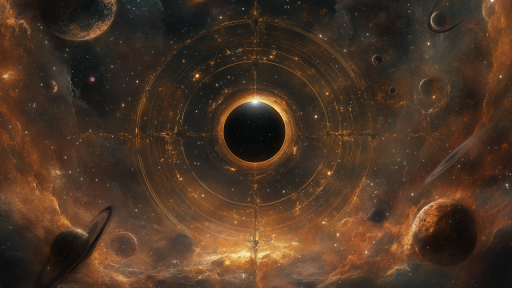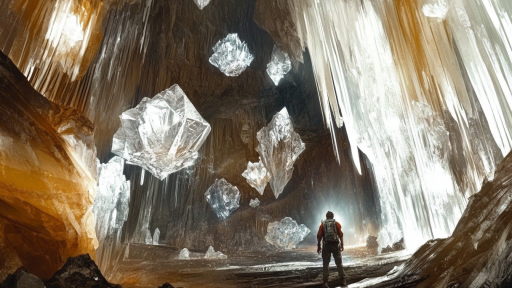
Earth’s magnetic field is one of the most mysterious and essential forces shaping our planet, yet much about it remains unknown. It shields us from deadly solar radiation, influences animal migration, and may even affect human behavior in ways we don’t fully understand. Scientists continue to uncover strange and shocking truths about this invisible force field that could reshape our understanding of Earth itself. Some discoveries raise unsettling questions—what happens if the magnetic field weakens, shifts, or even disappears?
The Magnetic Field Is Constantly Moving

Earth’s magnetic north isn’t fixed—it drifts by over 30 miles per year. This movement has accelerated in recent decades, making navigation adjustments necessary. Scientists aren’t sure why this shift is happening so quickly, but some believe it could signal an upcoming geomagnetic reversal.
It Has Flipped Hundreds of Times

Contrary to what most people think, Earth’s magnetic poles have reversed multiple times throughout history. These geomagnetic flips happen at irregular intervals, and the last major reversal occurred about 780,000 years ago. Some experts believe we may be overdue for another shift, which could disrupt satellites and power grids.
The Field Is Weakening Right Now

Studies show that Earth’s magnetic field has been steadily weakening over the last 200 years. The most dramatic decline is happening in the South Atlantic Anomaly, a mysterious zone where the field is particularly weak. If this trend continues, it could leave Earth vulnerable to increased radiation from space.
It’s Generated by a Churning Ocean of Liquid Metal

Deep beneath Earth’s surface, a molten iron and nickel core moves like a giant dynamo, generating the magnetic field. Without this constant motion, our planet would lose its protective shield against solar and cosmic radiation. Any disruption in this process could have serious consequences for life on Earth.
The Magnetic Field Can Disappear (And Has Before)

Fossil records indicate that Earth’s magnetic field has sometimes nearly disappeared before flipping. During these transition periods, the field weakens dramatically, exposing the planet to higher levels of solar radiation. If this were to happen again, the effects on technology and climate could be catastrophic.
Animals Use It Like a GPS System

Many species, from birds to sea turtles, rely on the magnetic field to navigate during migration. Some researchers believe even bacteria and insects can sense magnetic variations. If the field were to shift suddenly, these animals might lose their way, causing widespread ecological consequences.
Ancient Civilizations May Have Noticed Magnetic Shifts

Some historians believe that ancient records from China and Greece reference odd changes in the sky and compass-like behavior. These observations could indicate early signs of geomagnetic changes, long before modern science could study them. Some even speculate that geomagnetic disruptions influenced historical events.
The Northern and Southern Lights Exist Because of It

The breathtaking auroras that light up the polar skies are a direct result of interactions between the magnetic field and charged particles from the Sun. Without the field, Earth’s upper atmosphere would be bombarded with dangerous radiation instead of putting on a dazzling light show. These displays are a visual reminder of the magnetic field’s protective role.
It Has Sudden, Mysterious Jerks

Occasionally, Earth’s magnetic field experiences sudden, unpredictable shifts known as “geomagnetic jerks.” Scientists still don’t fully understand what causes them, but they can throw off navigational systems and impact radio communications. These anomalies serve as a reminder that the field isn’t as stable as we once thought.
It Protects Us from Solar Storms—But It’s Not Perfect

The magnetic field shields us from the Sun’s deadly radiation, but intense solar storms can still wreak havoc. The Carrington Event of 1859 was so powerful that it caused telegraph wires to spark and set papers on fire. A similar event today could cause global blackouts and widespread technological failures.
Some Scientists Believe It Affects Human Health

While not fully proven, some research suggests that fluctuations in the magnetic field might impact human biology. Some studies have linked geomagnetic activity to sleep disturbances, mood swings, and even cardiovascular health. If the field undergoes major changes, could it subtly affect how we feel and function?
Earth’s Magnetic Field Extends Far Beyond the Planet

The magnetosphere, Earth’s extended magnetic field, stretches tens of thousands of miles into space. This invisible shield protects not just our planet, but also astronauts and satellites orbiting in low Earth orbit. However, solar storms and cosmic radiation constantly test its limits.
Mars Lost Its Magnetic Field—And Its Atmosphere

Billions of years ago, Mars had a magnetic field similar to Earth’s, but it mysteriously disappeared. Without this protective shield, solar winds stripped away much of the planet’s atmosphere, turning it into the barren, lifeless world we see today. Could something similar ever happen to Earth?
The Invisible Shield That Holds Our World Together

Without Earth’s magnetic field, life as we know it would be impossible. It silently guards our planet from deadly cosmic forces, yet it remains in a state of constant change. The more we learn, the more we realize how fragile and mysterious this invisible force truly is. If history has shown us anything, it’s that change is inevitable—how will Earth’s next magnetic shift shape the future?





